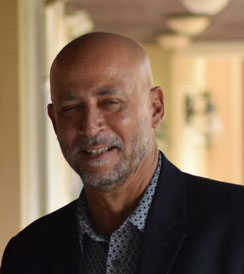PORT OF SPAIN, Trinidad, CMC – Cricket West Indies president Ricky Skerritt has painted a challenging portrait of the governing body’s finances, pointing to a shortage of working capital as a continued problem while underscoring the need to secure sustainable revenue streams.
Speaking last week on the one-year anniversary of taking up the helm of the embattled organisation, Skerritt said the board had continued to suffer from a legacy of over-spending without finding a means of off-setting costs.
Additionally, vital new broadcast deals still remained up in the air, depriving CWI of key revenue, while other income had fallen short of projections.
“West Indies cricket has been suffering for some time from a shortage of working capital. Basically we spend more money than we earn most years,” Skerritt said.
“When we earn more than we spend it’s usually small amounts. We’ve had an approach where we always spent money we thought was coming in advance of it coming, and sometimes the money that came wasn’t quite what we expected.”
Skerritt, a former tourism minister in St Kitts and Nevis, said grants from cricket’s world governing body, the International Cricket Council, was a prime example.
“We had been told that the ICC would be granting us a total of US$128 million over a seven-year period … well the ICC earnings fell a little bit and instead of getting 128 million over seven years, we’re going to be getting 119 million over the same period,” Skerritt pointed out.
“So that means West Indies was expecting an additional nine million dollars which we probably wouldn’t get but which we’ve pretty much already spent.”
Much of the recent cost has surrounded the acquisition of the Coolidge Cricket Ground in Antigua, formerly the old Stanford Cricket Ground.
CWI chief executive Johnny Grave said last month the board had been forced to use its “operating cash flow” to complete the purchase.
Skerritt explained that undertaking this venture without having a solid base of capital had obviously had a significant impact.
“Part of it (income) was spent on purchasing the Coolidge Cricket Ground and that money has had to go to complete the sale of Coolidge Cricket Ground,” he noted.
“[The purchase was completed] without having the kind of capitalisation that we needed to have, without having any long term money so that has pulled money out of our working capital.”
CWI’s fixed costs, Skerritt explained, stood at around US$45 million and this was serviced largely by ICC monies and broadcast revenue.
But with CWI belatedly entering the market to renew its broadcast deal last year, Skerritt said the board had found itself disadvantaged.
“The broadcast rights money expired in December last year and we still do not have completed negotiations with most countries …,” he said.
“One, you should really enter the market about two years before the end of the [deal] to start negotiating and trying to cajole and to convince the broadcasters to do business with you.
“We didn’t go to the market till around the same time I became president last year [March] so we’ve not had enough time in the market and to make it worse, the market has become very, very uncertain.
“So revenues which under normal circumstances we would have already begun collecting from broadcast rights, we have not done as yet.”
Skerritt said CWI would continue to navigate choppy financial waters going forward.
“Revenues continue to decline, expenses are fixed and even when you try to reduce some of the administrative or operational costs, you still have payrolls that exceed US$1.5 million dollars per month to cover players etcetera and other fixed costs that just won’t go away.”

